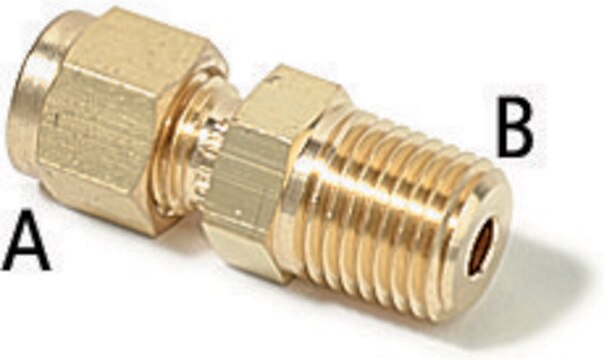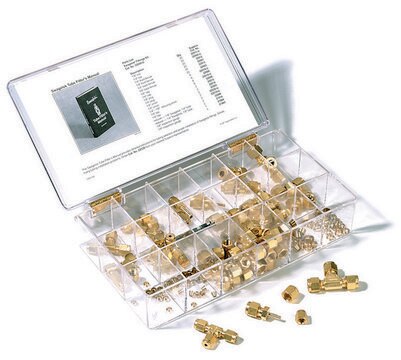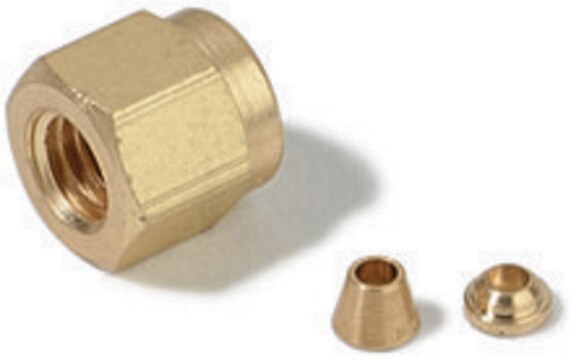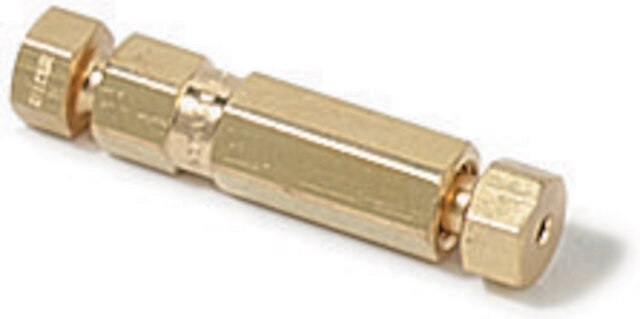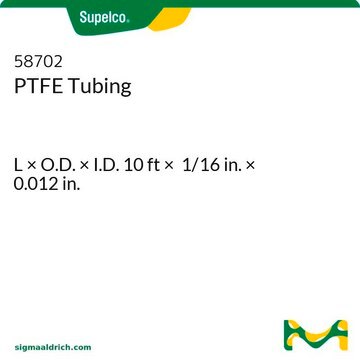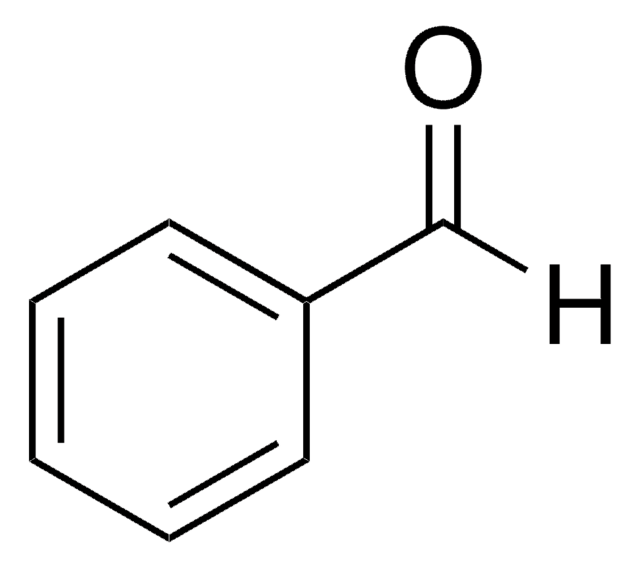22005
Swagelok® Reducing Union
Swagelok® 400-6-2, brass, 1/4 in. Swagelok
Synonym(s):
Swagelok® 400-6-2,BR.REDUC.UNION 1/4X1/8 PK2
Sign Into View Organizational & Contract Pricing
All Photos(1)
About This Item
UNSPSC Code:
41115717
Recommended Products
material
brass
packaging
pkg of 2 ea
manufacturer/tradename
Swagelok® 400-6-2
fitting
1/4 in. Swagelok
1/8 in. Swagelok
Looking for similar products? Visit Product Comparison Guide
Related Categories
General description
Reducing unions of Swagelok® type are mostly used as metal column terminators. All original reducing unions have a bore in the centre of about 6mm in length and an internal diameter of 1.2mm. Moreover, reducing unions have a large bore at the non-reducing site. Modification is necessary in reducing union in order to minimize peak broadening, pressure resistance and to ease the installation process.
Nuts and ferrules included.
Application
Brass Swagelok® reducing union maybe used for providing connections for the glass tubing fitted in it to the stainless steel tubing by means of PTFE ferrules, in an elution technique used for the determination of solubility of gases like argon, helium, nitrogen and carbon dioxide in molten salts at pressures ranging between 0.5 to 2 atm.
Legal Information
Swagelok is a registered trademark of Swagelok Company
Choose from one of the most recent versions:
Certificates of Analysis (COA)
Lot/Batch Number
Sorry, we don't have COAs for this product available online at this time.
If you need assistance, please contact Customer Support.
Already Own This Product?
Find documentation for the products that you have recently purchased in the Document Library.
Interactions of gases in ionic liquids. I. Solubility of nonpolar gases in molten sodium nitrate.
Field PE and Green WJ.
The Journal of Physical Chemistry, 75 (6), 821-825 (1971)
Instrumentation for High Performance Liquid Chromatography.
Huber JFK
Science, 84-88 (2011)
Our team of scientists has experience in all areas of research including Life Science, Material Science, Chemical Synthesis, Chromatography, Analytical and many others.
Contact Technical Service